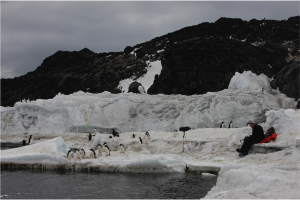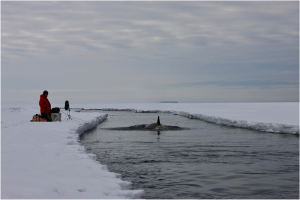2018/9 Lecture Series
The Faculty of Arts Research Lecture series offers the opportunity to hear from expert researchers sharing their knowledge and expertise on a variety of subjects. Open the headings below to find out more about each lecture in our 2018/9 series.
2019 Lectures
The impact of migration on Poland: EU Mobilitiy and Social Change
Abstract:
Conventional wisdom and scholarship on migration tend to see the impact of migration on sending countries in terms of loss. Contemporary scholars focus more helpfully on how migration creates ties between specific countries. Because the impact of migration on sending countries is usually studied in connection with development policy, researchers devote most of their attention rather narrowly to the collective impact of so-called diasporas. A more comprehensive and non-normative analysis may take as its starting point existing social trends in countries of origin, and explore how they may be reinforced or counteracted by migration-related influences. It’s usually assumed that migration impact – in the sense of improved housing and standards of living – happens mostly in the lives of rural and small-town labour migrants and their families. Social change in the sense of changing habits, attitudes and lifestyles happens most visibly among educated people in big cities. However, it would be false to assume that these are two separate processes. Migration blends with other globalisation and Europeanisation influences to shape the lives of individuals in Warsaw and Wrocław, just as in Polish small towns and villages.
Unexpected directions, necessary observations: making sense of the world through making
Abstract:
making 1. a. The action to MAKE v. in its various senses:
fabrication, production, preparation; institution, appointment; doing, performance (of a specified action); conversion into, causing to become something; etc. (See the vb.) Also occas. the process of being made.
The Oxford English Dictionary
As research practitioners do we reflect sufficiently on why exactly we do what we do? The issue of difference and its impact on an individual’s sense of self in the world, on their being, has been at the centre of Carol Tulloch’s writing and curating. Her talk will consider these points while reflecting on her research practice through the prism of making—significantly making the self, making things, making a life.
This is Research
Abstract:
Dr. Rauch will present her research and studio practice comprising of sculptural works (3D printed objects), a recent installation project (with mesas collective) and works on paper.
Her main focus will be on a collaborative research project with Michelle Gay entitled ‘A Hundred Thousand Lousy Cats’. This practice-led research project adopts some feminist principals of data visualization. We are interested in looking at the context of data, methods and politics of data collection, and the resulting visualizations/materializations.
Data, design, and, community use of the data, are all intertwined. We explore machine-human creative collaborations, the act of training AI systems, with some consideration around socio-political implications of classifications and categorizations. Using the Google QuickDraw dataset and platform, we explore the potential differences of algorithmic “machine”, or digitally constructed drawings, and works on paper; questioning and exploring then, what it means to draw and work within classification systems in an algorithm-leaning world.
Making Space: Decolonising Dance and Theatre Studies
Abstract:
My presentation is a call for decolonising dance and theatre curricula at British universities by ‘making space’ for the study of practices, philosophies, voices and critical perspectives beyond the predominantly pervasive Euro-American canon. Starting from the premise that space is finite, I would like to propose that the act of ‘making space’ is a decolonial act which has the potential to disrupt inherent power structures, with a view to rearranging them, thereby centralizing narratives, voices and practices that have hitherto been marginalized. With particular reference to my own lived reality as a British-Indian academic in the UK, I will discuss what my commitment to decolonising the fields looks like. Furthermore, if we acknowledge that embodied research fuels dance and theatre studies, then who we are and where we come from, i.e. our intersectional positionalities, need to be acknowledged at the heart of our scholarship. Without this emphasis on intersectionality, I would argue that our field is at risk of denying space for the multivocality of exp
On the limits of precision
Abstract:
Glass science is hard - it is chemistry and physics in overdrive. And persons trained and experienced in this branch of materials science and engineering, practicing at the cutting edge of research, development and manufacturing, are justifiably proud of what they know and do. There is in the world of glass art, however, great value to that technical understanding that does not depend on how efficiently and cleverly one can push back the boundaries of precision and utility. How can scientists be good colleagues to artists, who are also brilliant and driven, for whom “success” is measured on the advancement of the ineffable expressions of the human heart? In this lecture we shall explore the motivations of scientific and engineering research, and how artists might find or cultivate true colleagues across the so-called “art/science divide.
The Riddle of Literary Quality
Abstract:
Readers from different times and different places may have different perceptions of what makes a novel ‘literary’. The attribution of literary value is an intriguing social process, and difficult to grasp. Technological developments have created a new possible approach in learning more about this process: we can now try to measure the level of literariness of a text using new methods developed in the Digital Humanities. This is the methodology that was selected for the project The Riddle of Literary Quality, a research project of the Huygens Institute for the History of the Netherlands (Amsterdam) and partners. The Riddle combines computational analysis of writing style with the results of a large online survey of readers, completed by almost 14,000 participants. Correlating readers’ opinions and stylometric analyses makes visible which linguistic features play a role, but also which cultural biases are in place. Why are some authors and some works attributed with more literary prestige than others? What’s wrong with translations? And what does this tell us about contemporary society?
Xylophone music and wealth in knowledge in central Cameroon
Abstract:
Xylophone music has an important place in the contemporary soundscape of central Cameroon: xylophone ensembles called mendzang can be heard in urban bars, rural celebrations, funerary wakes, and the Catholic Mass. Drawing on ethnographic research conducted in collaboration with Kisito Essele between 2017 and 2019, this paper introduces examples of this music and explores their historical context. It then presents a case study involving xylophone music composed for the Cameroonian Catholic liturgy, and exploring how this music extends a complex set of allegiances, at once global and local, and to persons both intimate and imagined.
Abstract
Choreographer and Artistic Director Rosie Kay will give a talk on the research methods used to create her award-winning works and the conceptual basis for the relationship between the dance, music and empathic connection in her work.
Trained in both dance and music, Kay’s choreography developed a strong relationship between the dance, the music and storytelling. In 2008, Kay set out to create a work that was inspired purely by the relationship between the music and the dance to illicit emotional responses from the audience, the result being the award-winning duet, Double Points: K. Following this work, Kay then went on to work with a team of neuroscientists as part of the ‘Watching Dance Project’ and created a work to be explicitly used to test the relationship between the dance, the music and the audience’s perception.
5 Soldiers- The Body is the Frontline was created in 2010 after Kay spent a year researching military infantry training with the British Army. Kay will discuss how this intense field research and the ‘Watching Dance’ results were used to create the final work, praised by soldiers and civilians for it’s visceral response in spectators. Kay will go on to talk about how this has informed her later works, including her work with University of Oxford, and MK Ultra (2017) that looks at pop music and brainwashing and her new research on Fantasia which explores music, joy and beauty.
Pathophobia, illness and vices
Abstract:
This talk introduces the concept of pathophobia: a term to capture the variety of morally objectionable ways in which ill persons are talked and thought about and treated within the social world. Drawing on testimonies by chronically ill persons, I argue that there are five main clusters of pathophobic vices and failings typically expressed in the negative ways that ill persons are typically treated, with untruthfulness about the complexities and realities of illness being among the worst. I end the talk by sketching some ways the concept of pathophobia might be developed in a future programme in the philosophy of illness.
Cosmopolitanism before and after Nationalism
Abstract:
The lecture starts by looking briefly at late medieval/ early modern patterns of cosmopolitanism as these were reflected in global trade and then turns to the form in which this commercially-driven model evolved in the course of the 19th century, in the ‘Levantine cosmopolitanism’ of cities like Alexandria and Smyrna, the limits of which were all too obvious. This, as Philip Mansel has argued, was catastrophically destroyed by the upsurge of nationalism in the 1910s and early 1920s. Meanwhile, the sense of a new kind of cosmopolitanism was emerging both in Marx’s work (where it was never fully developed), in the violent rejection of the ‘civilising mission’ that lurks in the poetry of Rimbaud or in Paul Nizan’s youthful meditation Aden-Arabie (1932), sparked by a voyage to the east, a sensibility that shapes much of the poetry of the twentieth century as well, and, finally, in one (today scarcely perceptible) strand of left-radical politics that came to the fore briefly in Tom Nairn’s left-wing defense of Europe in the early seventies. I shall end by arguing that the only consistent cosmopolitanism is one that rejects the absolutist claims of the national state over its own citizens, a conception or challenge which, as Seyla Benhabib argues, has its roots in Kant’s notion of a ‘cosmopolitan right’. Given the sheer scale on which human rights abuses are being perpetrated the world over behind the screen of ‘national sovereignty’, it is imperative for this idea to become central to our notions of democracy and of what it means to live in a modern world.
Past lectures
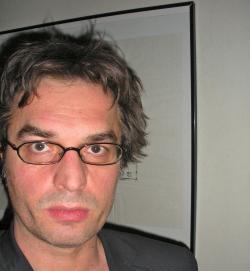 |
Dr Stefan Nowotny, Goldsmiths University Research group: Art, Philosophy and Social Practice Cluster Date: Tuesday 14 November 2017 Venue: MK045, 6 - 7.30pm The Politics of Translation: Migration and the Becoming of Languages In recent decades, translation has become an important focus of critical concerns yet also often been deployed as a ready-made metaphor to address questions related to globalisation, migration or other instances of rapidly shifting semiospheres. But what is actually at stake in the process of translation: agentially, socially, politically? Moving away from communicational understandings of translation based on models of source/target languages, and bracketing generalising debates around the (un)translatable, this talk will take its cue from the notion of a ‘becoming of languages’ (W. Benjamin). It will ask how acts of translation are informed by various political presuppositions – or may contribute, on the other hand, to undoing them. Stefan Nowotny is a philosopher based in London. He teaches at the Department of Visual Cultures at Goldsmiths, University of London and is a member of the independent research institute eipcp – European Institute for Progressive Cultural Policies. He has been part of several research projects on translation since 2005, resulting in several co-edited volumes as well as the co-authored book Übersetzung: Das Versprechen eines Begriffs (w/ Boris Buden; Vienna/Berlin, 2008). Various of his writings on translation are available on the eipcp’s multilingual web journal transversal, http://transversal.at/transversal. |
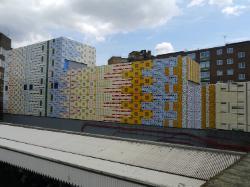 |
Speaker: Jacqueline Poncelet Research group: Centre for Art, Design, Research and Experimentation, Material and Theoretical Practice Cluster Date: Tuesday 21 November 2017 Venue: MK045, 6-7.30pm Here and there, now and then From the beginning of her career, Jacqueline Poncelet has been drawn to pattern and colour with an interest in form coming later. After initially studying ceramics, she worked exclusively in clay until the mid-1980s. Since then, it has been increasingly difficult to define her as an artist following explorations in sculpture and painting, as well as installations and collaborations with other artists. She has also curated exhibitions and worked on public commissions, both large and small. A theme of embracing the visual complexity of the world is present in Jacqueline’s work. Rather than being overwhelming, she views this complexity as both positive and exciting, something that enriches our lives. |
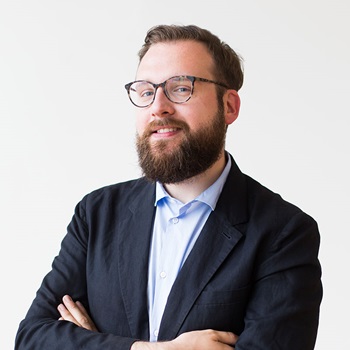 |
Speaker: Dr Michael Birchall, Liverpool John Moores University
Research group: Centre for Art, Design, Research and Experimentation, Art, Philosophy and Social Practice Cluster Date: Tuesday 28 November 2017 Venue: MK045, 6-7.30pm uratorial Consciousness This lecture will discuss the challenges present in contemporary curating as museums continue to expand their collections, devote programming to durational performance, and socially engaged art. As artists have moved towards models of post-studio practice, in which the art object is no longer privileged above other forms, the gallery itself becomes a site for production, interaction and debate. This turn has seen the museum and the curators who programme exhibitions shift their attention to user experience. As such, the contemporary museum is quickly moving into a site of production and gravitating towards participatory models.
|
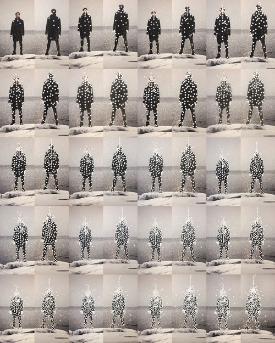 |
Speaker: Paul Bevan, London College of Fashion
Research group: Centre for Art, Design, Research and Experimentation, Communication and Design Cluster Photography in Superposition The term 'superposition' is used in the quantum world to describe the status of (invisible) matter that conceivably exists in all possible states at once. The superposition collapses into a singular state through an act of detection or observation, when the matter is seen or observed. Paul Bevan considers photography as an act of observation that collapses the superposition in a number of ways, and also as a practice that creates it. |
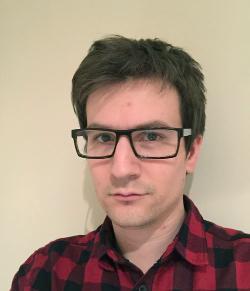 |
Speaker: Lee Scott, Bath Spa University
Research group: Centre for Creativity, History and Identity in Performance Research Centre Date: Thursday 7 December 2017 Venue: WH027, 6-8pm Is That a Thing? Voyages in Creative Computing and Digital Opera This talk traces the development of artworks that collide computing, music and interactive storytelling. Concepts such as digital opera and ASMR music are proposed, and positioned as examples of Creative Computing – an emerging field that is concerned with knowledge combination and deploying computing as a tool to enhance human creativity. Lee Scott introduces the trajectory of Creative Computing while revealing his personal approaches to co-creation, ‘liveness’ and digital music, and suggests how each contributes to a reimaging of the opera form. The talk closes with an outline of several upcoming projects that apply the philosophy of Creative Computing in contexts that extend beyond digital performance. |
|
|
Speaker: Chris Watson
Faculty of Arts, University of Wolverhampton and Institute of Acoustics (IOA), Midlands Branch Date: Thursday 25 January 2018, 6pm for a 6.30pm start Venue: The Black Box Theatre, The Performance Hub, Walsall A Journey South by Chris Watson Chris Watson will describe and illustrate with sounds and images the journey he made to Antarctica and the South Pole as sound recordist for the BBC television series ‘Frozen Planet’ several years ago. This is a place described a century earlier by the film maker Herbert Ponting as the ‘Great White Silence’ when he filmed the ill fated journey of Captain Robert Falcon Scott’s polar expedition. Watson will describe his experiences in discovering a sound rich environment under the surface of the ‘silence’. Background: Watson was a founding member of the influential Sheffield based experimental music group Cabaret Voltaire during the late 1970’s and early 1980’s. Since then he has developed a particular and passionate interest in recording the wildlife sounds of animals, habitats and atmospheres from around the world. As a freelance composer and sound recordist Watson specialises in creating spatial sound installations which feature a strong sense and spirit of place. His television work includes many programmes in the David Attenborough ‘Life’ series including ‘The Life of Birds’ which won a BAFTA Award for ‘Best Factual Sound’ in 1996, and as the location sound recordist on the BBC’s series ‘Frozen Planet’ which also won a BAFTA Award for ‘Best Factual Sound’ (2012). Watson has recorded and featured in many BBC Radio 4 productions including ‘The Wire’ which won him the Broadcasting Press Guild’s Broadcaster of The Year Award (2012). His music is regularly featured on the BBC Radio 3 programme ‘Late Junction’. In 2013 Watson received a Paul Hamlyn Composers Award. His installations have been commissioned by international galleries and festivals such as; Sheffield Millennium Gallery, Opera North in Leeds, The National Gallery, London, The Royal Opera House, Covent Garden, The Louvre, Paris and the Aichi Triennial in Japan. Attendance is free and everyone is welcome, but booking is required. If you have any queries please contact A.Foteinou@wlv.ac.uk. The event is supported by PMC-The Professional Monitor Company (about PMC)
|
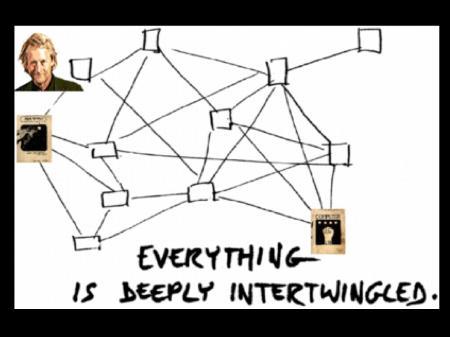 |
Speaker: Dr Judith Aston, University of the West of England
Research group: Centre for Film, Media, Discourse and Culture Date: Tuesday 30 January 2018 Venue: MK045, 6-7.30pm Interactive documentary: what does it mean and why does it matter? Drawing on Judith’s work with i-Docs and her practice-led research, this talk will provide an overview of the field and explore key debates. Judith will make the case for emplaced interaction as a strategy through which to push back against the creeping threat of algorithmic agency. |
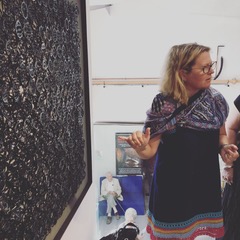 |
Speaker: Dr Vanessa Cutler Research group: Centre for Art, Design, Research and Experimentation Date: Tuesday 6 February Venue: MK045, 6-7.30pm Glass, technology and industrial engagement Being inquisitive is part of the human make up and a major element of my practice. By exploring application of traditional practice and industrial process the work builds on developing an intimacy of understanding between direct “hands on” application and the indirect methodology of industrial processing. In developing an intimacy with both machine and the material the work seeks to extend the parameters of both areas and investigate how this method of approach can be extended to others. The work explores the methods of industrial engagement through collaboration with industry both within the water jet industry and through the manufacturing sector. |
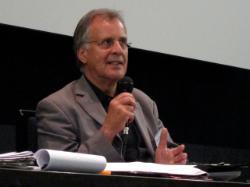 |
Dr Ian Mcdonald, University of Leeds
Research group: Centre for Film, Media, Discourse and Culture Date: Wednesday 28 February Venue: MK045, 6-7.30pm Stories behind the screen: the rise of Screenwriting Studies Did you hear the one about the highly respected writer who throws all his best work away? Or the author of an acclaimed drama, who didn’t write it? Or, astonishingly, there’s the creative practice on which the world’s film industries have been based for over a century, but which has been entirely ignored by perhaps 90% of Film Studies academics? No? Screenwriting Studies has become established as an academic focus only within the last decade. Suddenly we’re seeing how much we need to do to redress this startling omission from our field, and how significant this focus seems to be in the changing world of screen storytelling. |
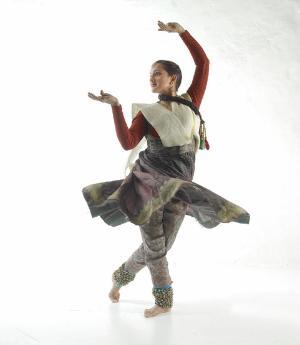 |
Sonia Sabri Research group: Centre for Creativity, History and Identity in Performance Date: Thursday 8 March Venue: WH027, 6-7.30pm Deconstructing Kathak The intention of this dialogue is to examine the significance and role that my work as a choreographer and dancer has on the postmodern subject and climate of the twenty-first century. The discussion begins with a brief overview of the company’s philosophies. These focus on how the rudiments of the North Indian classical form of Kathak provide the basis for many of my postmodern constructions. The discussion is then extended further to demonstrate how I create compositions by deconstructing the “fixed” and regimented language of Kathak. The intention of this is to illustrate that a “positive” space can exist when teasing apart threads of a highly structured and stylized art form. This is to say that from this form of experimentation emerges a “new” rhetoric and further possibilities for the dancing body. My argument concludes with a focus on how I see my vocabulary and work evolve within the contemporary dance/arts world. This includes allowing audiences to think differently about the language of dance, the transference of those skills of deconstruction and the rich possibilities that lay in the emergence of hybridity. |
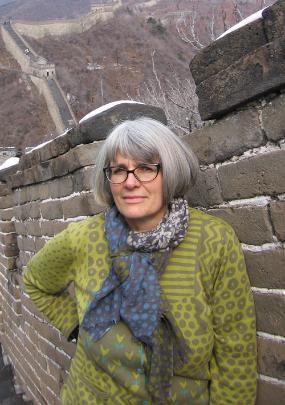 |
Professor Carolyne Larrington, University of Oxford Research group: Centre for Transnational and Transcultural Research Date: Tuesday 13 March Venue: MK045, 6-7.30pm Game of Thrones, George Martin's A Song of Ice and Fire and (Neo)Medievalism In this lecture Prof Carolyne Larrington considers the world's most popular TV show, Game of Thrones, the book series on which it is based and the ways in which medievalist and neomedievalist perspectives illuminate the achievements – and the failures – in the series as realised across the different media. From Beyond the Wall to the eastern wastes of Qarth, this lecture explores and expands upon the medieval world of Game of Thrones. |
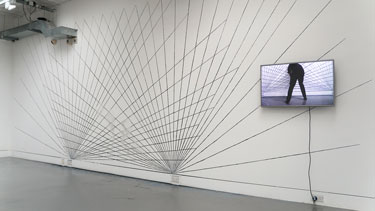 |
Robert Luzar, Bath Spa University Research group: Centre for Film, Media, Discourse and Culture Date: Tuesday 20 March Venue: MK045, 6-7.30pm Tracing Where We Art Not A trace is something more than what gets left behind. There is a ‘trace’ that can be engaged through forms of image, gravity, bodily obstruction, irreducible points, and dislocated gestures. Throughout this talk, these idioms will be taken from the artist’s so-called subjective experience. The trace will be approached using reflections made – or read out – from his writings on works where he uses performance and digital video in certain traceless actions. The reading circulates on this question: how are works to be viewed, or ‘traced’, that show not where One – the so-called individual as ‘me’ – virtually is but, rather, open from where we are not? This question interrogates experiences of an event engaged through gravity, of undergoing times where the performance experientially stretches out, of a shared intimacy of space, of dislocating gestures presented to audiences live while also recorded for video. ‘Not’ is the counter-expression this ongoing event traces. In method, these reflections will occur by reading rather than writing, neither privileging (drawn, recorded) mark nor inscription; the trace will instead be read in ways that, as philosophers Jean-Luc Nancy and Catherine Malabou say, ‘exscribe’ changes of form, or ‘plasticity’. The talk concludes by rethinking ‘spaces’ that artist and audience perceptually trace in an explosive imaginary. That is to say an image and openness of self-becoming other – there where we are not, not individually substantive, not purely ‘me’. Tracing this instead: the image of where we co-appear and co-exist.
|
Tuesday 13 November
6pm-7pm
MK045, George Wallis Building
Abstract
Though originally from Japan and educated as a journalist in the US, Ikuru Kuwajima has been living and working in various post-Soviet countries for more than ten years, moving from one city to another periodically around Eurasia including Russia, Ukraine and Kazakhstan.
Over years, he changed not only his place of residency but also his creative process, professions and worldview. The changes resulted from his observation on the media as an insider and his reflection on the transformation of his perspectives of the others over time.
Through projects partly based on his personal experience, he strives to question the system, conventional ideas and nature of the media, which are prone to oversimplification, and fill in the gaps that are often overlooked.
In the lecture, Kuwajima will talk about his recent photographic, video and writing projects including “I, Oblomov” and several others, and the experiences that prompted him to work on those projects.
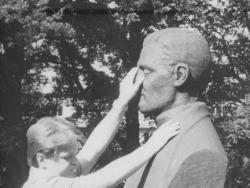 |
Emanuel Almborg, The Royal Institute of Art, Stockholm Research group: Art, Philosophy and Social Practice Cluster Date: Tuesday 10 April 2018 Venue: MK045, 6.00pm - 7.30pm Screening and Presentation of the film: Talking Hands/Говорящие руки Talking Hands/Говорящие руки, 2016, is a film about the 1960’s Zagorsk school for deaf-blind children outside Moscow and its pedagogy. It was established by Marxist philosopher Evald Ilyenkov, who, in contention with dominant Soviet ideology, began developing ideas of how human consciousness is socially constituted and emerges in relation to material culture, objects, and tools. Inspired by 17th century philosopher Baruch Spinoza he conceptualized the “thinking body,” that is, a body’s capacity to “mould its own action actively to the shape of any other body, to coordinate the shape of its movement in space with the shape and distribution of all other bodies” as a fundamental feature of ‘thinking’ or ‘reason.’ For Ilyenkov, communism was a pedagogical project for such a vision and subject to emerge. Or as Alexander Suvorov, one of Ilyenkov’s deaf-blind students described, "Who told you we see nothing and hear nothing? We see and hear through the eyes and ears of our friends, all people, the entire human race." The film focuses on Suvorov, whom Almborg met in his home in a Moscow-suburb. For a few evenings, they spoke with the help of two translators, from English to Russian and from Russian to tactile signing and back—a slow, fragmented conversation marked by misunderstandings and translation errors that serves as the basis for the films dialogue. The film also includes 16mm archive footage which documents the teaching and activities around the Zagorsk school in the late 60s – early 70s. Its filmmaker and exact date is unknown, the only information attached to it when Almborg found it in the archives in Moscow was its title: "Talking Hands”. |
 |
Speaker: Dr Kate Lister, Leeds Trinity University Centre for Transnational and Transcultural Research Date: Tuesday 17 April 2018 Venue: MK045, 6.00pm-7.30pm ‘A Nasty Name for a Nasty Thing’: A History of C**t' Walter Kirn called c**t ‘the A-bomb of the English language’, and he’s absolutely right (Kirn, 2005). In 2016, Ofcom (the regulator for UK communications) ranked swear words in order of offensive, and the C-Bomb came out on top. The British Board of Film Classification’s guidelines state that the word c**t can only be used frequently in films that are rated 18+. Feminists have long maintained an uneasy relationship with the word, unsure if it is empowering or demeaning. But, how did we end up here? How did a word that signifies the vulva end up being ranked as one of the most offensive words in the English language? Join Kate Lister in an exploration of c**t and find out just how it ended up on the linguistic naughty step.
|
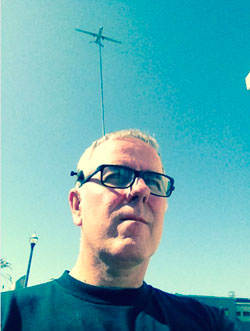 |
Speaker: Professor Joseph DeLappe, Abertay University Centre for Film, Media, Discourse and Culture Date: Tuesday 24 April Venue: MK045, 6.00pm-7.30pm Resistance, Play and Memory: The Work of Joseph DeLappe Joseph DeLappe creates work in computer gaming, sculpture, electromechanical installation and interventionist practices. Projects have been shown throughout the United States and internationally. DeLappe will present an overview of works that overtly investigate and question the role of technology, militarism, politics and play through works that conceptually and critically intervene in social and political contexts. In all the work, the intent is to forge connections between concept, object, interaction and a questioning/critical stance regarding issues surrounding contemporary geopolitics. The theoretical basis for the work lies in the belief that it is essential, as an artist and citizen of the world, to engage in and challenge the norms and expectations of the digital present and the larger cultural context. Past and ongoing efforts share an approach to critical and conceptual positioning as an artist - developing works that inquisitively engage issues of memory, politics, history, physicality and the virtual.
|
 |
Speaker: Paul Bevan, London College of Fashion
Research group: Centre for Art, Design, Research and Experimentation, Communication and Design Cluster Date: Tuesday 1 May, 6.00pm - 7.30pm The term 'superposition' is used in the quantum world to describe the status of (invisible) matter that conceivably exists in all possible states at once. The superposition collapses into a singular state through an act of detection or observation, when the matter is seen or observed. Paul Bevan considers photography as an act of observation that collapses the superposition in a number of ways, and also as a practice that creates it. Image from In Superposition (again), Waves and Particles, London 2017 #disappearanceoftheartist |
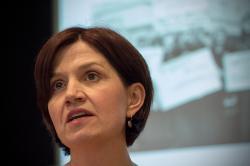 |
Speaker: Professor Karen Boyle
Centre for Film, Media, Discourse and Culture Date: Wednesday 9 May, 6.00pm-7.30pm Venue: MK045 #MeToo, Weinstein and Feminist Theory Since Harvey Weinstein’s history of sexual abuse became a global news story in October 2017, the continuum of men’s sexually abusive behaviour embedded within a wide range of social, political and cultural institutions has received unprecedented mainstream commentary. Whilst the voices of victim/survivors, as well as those of feminist critics and commentators, have been prominent in the media coverage, these have – somewhat predictably – been accompanied by much negative commentary, with individual women, and the movement itself, accused of mounting a war on unsuspecting men unable to read the signals in a new sexual economy. Media engagement with this case thus provides a productive lens through which to explore feminist theory on men’s violence against women, in the broader context of media representations of feminism and of gender violence. This is entirely consistent with a long-standing recognition within feminist theory and activism that representation is not a sideshow in this debate, but an essential element in how survivors, perpetrators, bystanders, juries and others make sense of gender and violence. This paper will use media coverage of the Weinstein case to consider how this can help us think through – and rethink –questions around silence breaking and testimony; the continuum of men’s violence against women; the cultural value of abuse to the entertainment industry; and how to represent male perpetrators and hold them accountable. |


/prod01/wlvacuk/media/departments/digital-content-and-communications/images-2024/240328-Varsity-Line-Up-Resized.jpg)
/prod01/wlvacuk/media/departments/digital-content-and-communications/images-18-19/220325-Engineers_teach_thumbail.jpg)
/prod01/wlvacuk/media/departments/digital-content-and-communications/images-2024/240404-Digital-Humanities-Training-Resized.jpg)
/prod01/wlvacuk/media/departments/digital-content-and-communications/images-2024/240320-Uzbekistan-Resized.jpg)
/prod01/wlvacuk/media/departments/digital-content-and-communications/images-2024/240229-The-Link-Resized.jpg)
/prod01/wlvacuk/media/departments/digital-content-and-communications/images-2024/240404-Pharmacy-Students-Resized.jpg)
